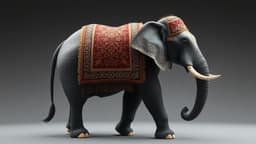Home / Health / Tradition vs. Science: Indian Newborn Care Dilemma
Tradition vs. Science: Indian Newborn Care Dilemma
27 Nov, 2025
Summary
- Traditional newborn practices in India often conflict with evidence-based medical advice.
- Experts warn against prelacteal feeds like honey and gripe water due to health risks.
- Exclusive breastfeeding for six months is strongly recommended for infant health.

Anjaly Thankappan's experience as a new mother highlights a significant challenge in India: the conflict between traditional newborn practices and evidence-based medical care. Postpartum ceremonies and traditional beliefs often lead to practices that endanger infants, such as overcrowding and unhygienic handling, contributing to neonatal infections, a leading cause of infant mortality.
Experts like Dr. Arun Kumar Sundaram and Dr. Rajasree S. strongly caution against prelacteal feeds such as honey, sugar water, and gripe water. Honey, in particular, carries the risk of botulism in infants under one year due to immature digestive systems. These practices not only delay crucial exclusive breastfeeding but can also lead to severe diarrhea, sepsis, and allergic reactions, while discarding colostrum deprives babies of vital antibodies.
Healthcare professionals advocate for exclusive breastfeeding for the first six months, emphasizing its role in providing essential nutrients, antibodies, and growth factors. They also advise against harmful practices like nasal oil instillation or applying kajal. Experts suggest engaging elders in evidence-based discussions and providing parents with updated information to navigate generational conflicts and promote safer newborn care practices.




